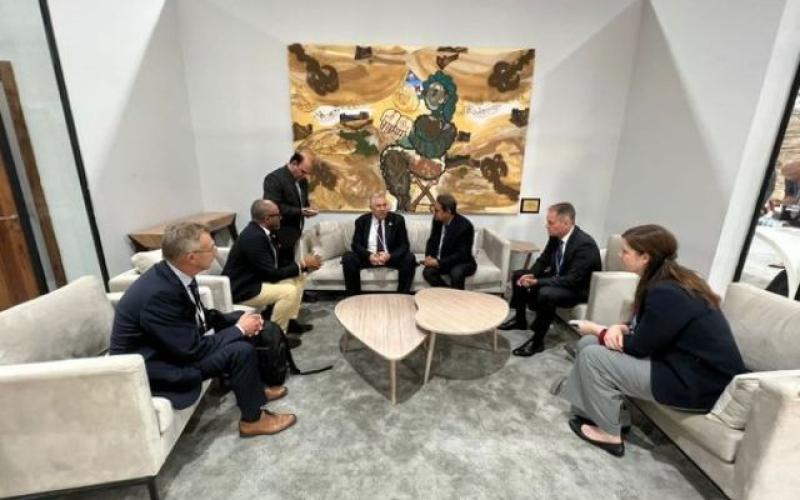
- A high-level delegation from CGIAR met with the Egyptian Minister of Agriculture and Land Reclamation on the margins of UNFCC COP27 at Sharm el-Sheikh.
- The main topic of conversation was how Egypt may take advantage of the new CGIAR framework while also increasing the ties between science and research through innovation and collaboration with local and regional partners.
Egyptian Minister of Agriculture and Land Reclamation Al-Sayed El-Quseir met with a delegation from CGIAR on the margins of the 27th Conference of the Parties to the United Nations Framework Convention on Climate Change (UNFCC COP27) at Sharm el-Sheikh.
The delegation included Essam Yassin Mohammed and Ahmed Nasr-Allah, WorldFish’s interim director general and country director for Egypt, respectively, Aly Abousabaa, director general of the International Center for Agricultural Research in the Dry Areas (ICARDA), Mark Smith, director general of the International Water Management Institute (IWMI) and Martin Kropff, CGIAR’s global director of resilient agri-food systems. Mohamed Fahim, a climate change consultant to El-Quseir was also in attendance.
Discussions revolved around exploring new horizons for Egypt to benefit from the new CGIAR structure amidst the strengthening of bonds between science and research through innovation and mutual collaboration with local and regional partners.
El-Quseir also made reference to the leadership role of many agricultural scientific and research centers in Egypt. He expressed his willingness to cooperate with CGIAR toward implementing COP27’s outcomes with a focus on achieving the goals of the Food and Agriculture Sustainability Transition (FAST) initiative that was launched on 12 November 2022 in conjunction with Agriculture and Adaptation Day.
The initiative aims to reduce the harmful impacts of climate change with a core objective to accelerate partnerships for achieving resilience and funding resources. The initiative also covers innovation and technology for food security and sustainable transformation.
Abousabaa highlighted that ICARDA is planning to launch an alliance for agricultural research centers in the Central and West Asia and North Africa (CWANA) region as part of CGIAR. It will include members of research centers in Egypt as well as other CGIAR centers. The alliance will be prioritizing the outcomes of COP27 and eventually be used as a role model for other parts of the world.
The respective parties agreed to continue meeting regularly, either physically or virtually through video conferencing technology.
This article was originally published in The Republic in Arabic.
